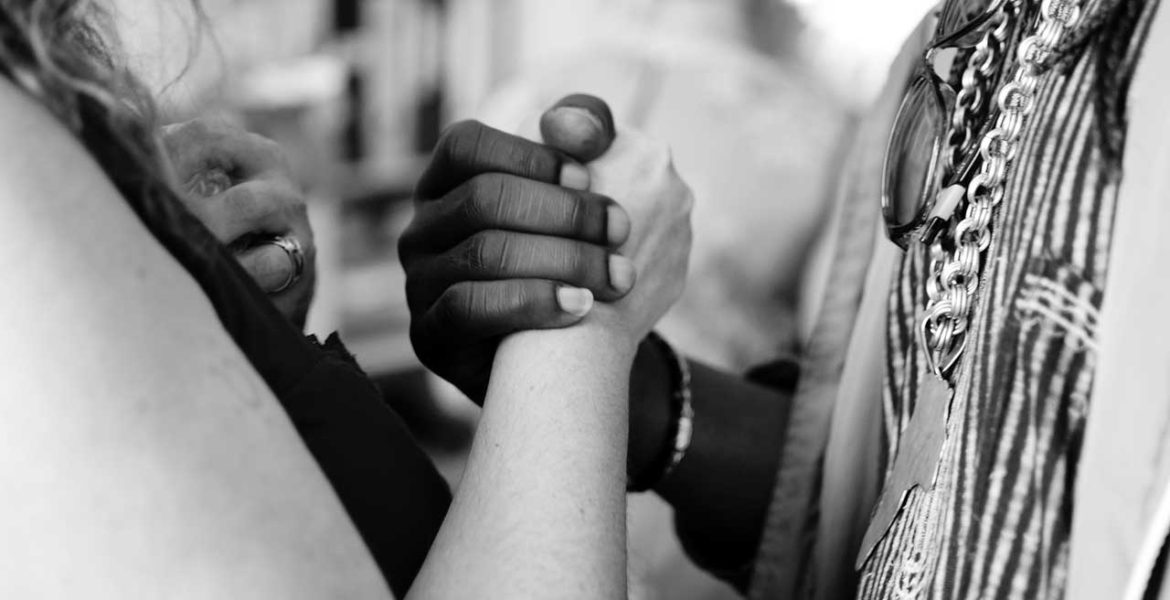
By Olivia Tomlinson
Research Fellow, Lloyds Banking Group Centre for Responsible Business
Celebrate differences, and finally stop encouraging colleagues to “be more white” – because in the words of one male survey respondent, “if we keep doing the same thing we will end up with the same results”.
As with every October in the UK, Black History Month is celebrated and publicised by businesses, big and small alike, pledging to celebrate their Black employees, and create a safe and diverse working environment for their staff. But despite this outpouring of support during October, the fact of the matter is that many Black, Asian, Mixed Race and ethnically diverse talent in the UK workforce don’t feel that these promises are being met and report high amounts of discrimination and outright racism in the workplace.
“Essential requirement for promotion and progression: white candidates”. You might be wondering how such a sentence is acceptable in a University of Birmingham blog. But this is neither my opinion, nor that of my colleagues at the Business School. Rather, this shocking sentence is based on the actual experience – and not an isolated experience at that – of a black female respondent to the Race at Work Survey (RAWS) 2021, commissioned by Business in the Community, in collaboration with YouGov.
This is one of many workplace experiences of racist harassment and bullying, progression, and diversity and inclusion (D&I) reported in the survey of 24,500 UK employees. As we see more businesses claim to celebrate Black History Month as October continues, I write this blog to document some of the experiences that ethnically diverse employees are faced with in the workplace today.
Let’s begin with some positive indications from the wider business sphere. In 2021, Thomson Reuters reported a 108% increase in ethnic minority board members in FTSE 350 companies. Another recent report by McKinsey & Company recognises a 36% increase in above-average profitability in ethnically diverse executive teams, with creativity and innovative decision-making long-proven benefits of leadership diversity. So at last, it seems companies might be recognising the need to dispel the “myth of white, male superiority that prevails in business”, as my colleagues Professor Ian Thomson and Dominic Bates aptly put it in their book Urgent Business.
And yet, some of the insights from the RAWS 2021 might make us question any positive improvements in the representation of ethnic minority staff at senior level or higher. For example, one respondent – female, Black or Black British – talks us through how she was only rewarded with a promotion in 2016 after utilising three months of her personal time to develop an inhouse recruitment system, thus saving her employer a significant sum of money.
So, what does this indicate? A consistent theme in the RAWS 2021 data is that workers from a Black, Asian, Mixed Race and ethnically diverse background feel that they need to “work twice as hard, to get half as far”, suggesting that even with an obvious business case for increasing diversity at top level, workers are expected to contribute at least double the time and effort of white employees to even be considered for promotion. Promotion and progression aren’t the only troubling areas from the data. Minority ethnic workers regularly face racist harassment and bullying in the workplace from multiple sources, including customers, colleagues, the public and wider business networks. The most reported perpetrators are senior leaders.
With most workplaces seemingly striving towards fostering diversity and inclusion via D&I programmes, why are these frameworks failing ethnically diverse employees in terms of promotion and recruitment, and mitigating and punishing incidents of racist bullying and harassment? Overwhelmingly, respondents indicate an inauthenticity in D&I programmes; phrases such as “lip-service”, “done only for show”, “box ticking exercise” and “PR stunt” are all common-place. So perhaps it’s time to ask employees what they require instead?
The RAWS 2021 did just that and found that employees are asking firms to be both accountable and transparent. Pay-gaps, decision-making, recruitment, progression and interventions targeting discrimination, harassment and bullying are all lacking in transparency. Employees want tangible, transparent, direct action or intervention – not simply lip-service to a stagnant D&I policy that is done to tick a box.
Employees are asking for acknowledgement of their experiences of racism and discrimination, as well as the systemic drivers. This acknowledgement should come from organisations, but also from colleagues, who often fail to recognise the problems or fail to contribute to solutions. Employees want increased allyship and the involvement of non-marginalised colleagues in D&I programmes.
Think back to the ‘essential requirement’ line at the start of this blog. Nobody would expect those words in a job advertisement. Yet just because such sentiments may not be explicitly echoed does not mean they are not implicitly evident across the workplace – yes, even in firms with D&I programmes. So, calling all employers: rebuke inauthenticity and embrace a diverse, inclusive workforce! Celebrate differences, and finally stop encouraging colleagues to “be more white” – because in the words of one male survey respondent, “if we keep doing the same thing we will end up with the same results”.
- Olivia Tomlinson is a Research Fellow at the Lloyds Banking Group Centre for Responsible Business in the Birmingham Business School
- Back to Business School Blog
The views and opinions expressed in this article are those of the author and do not necessarily reflect the official policy or position of the University of Birmingham.
